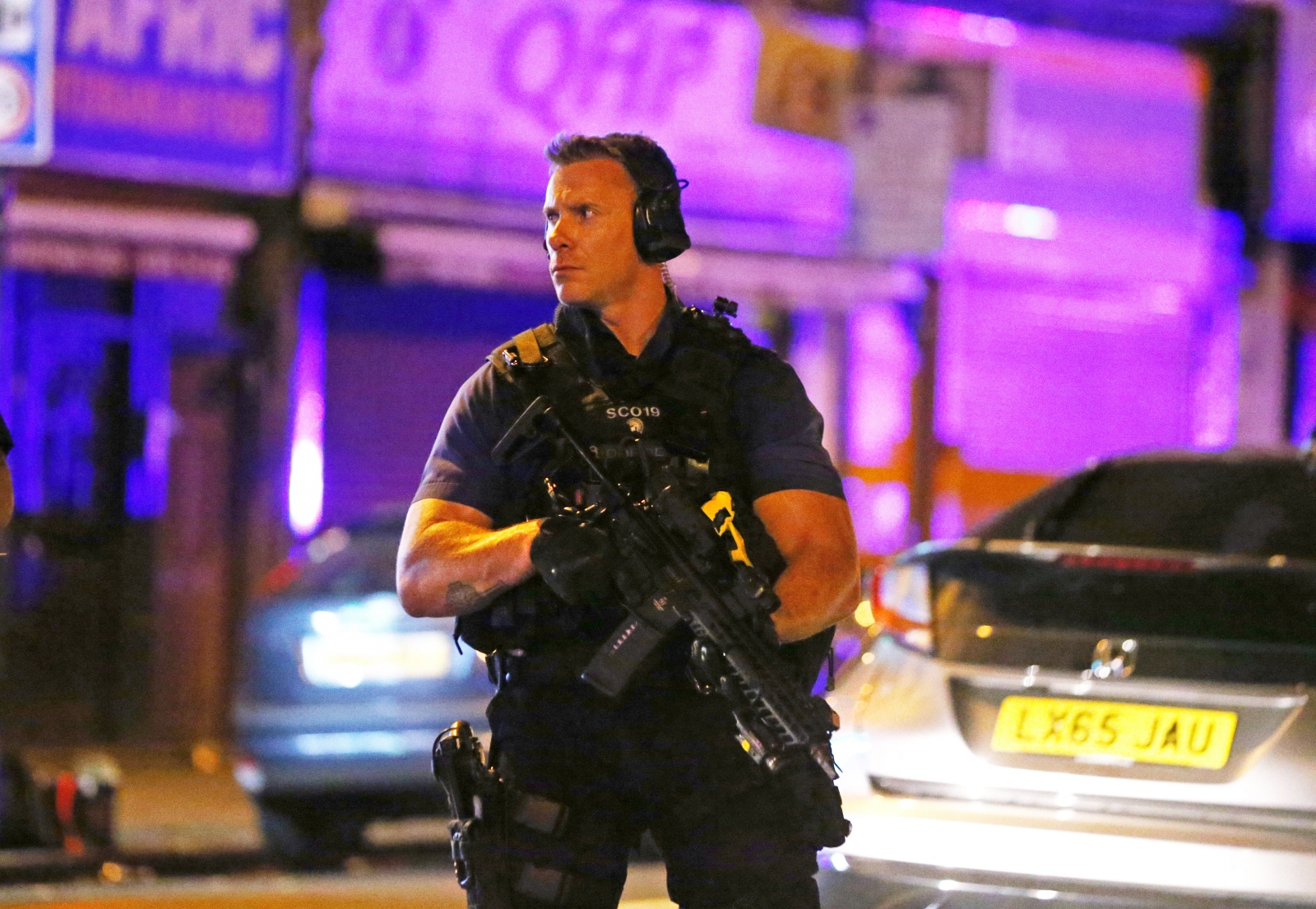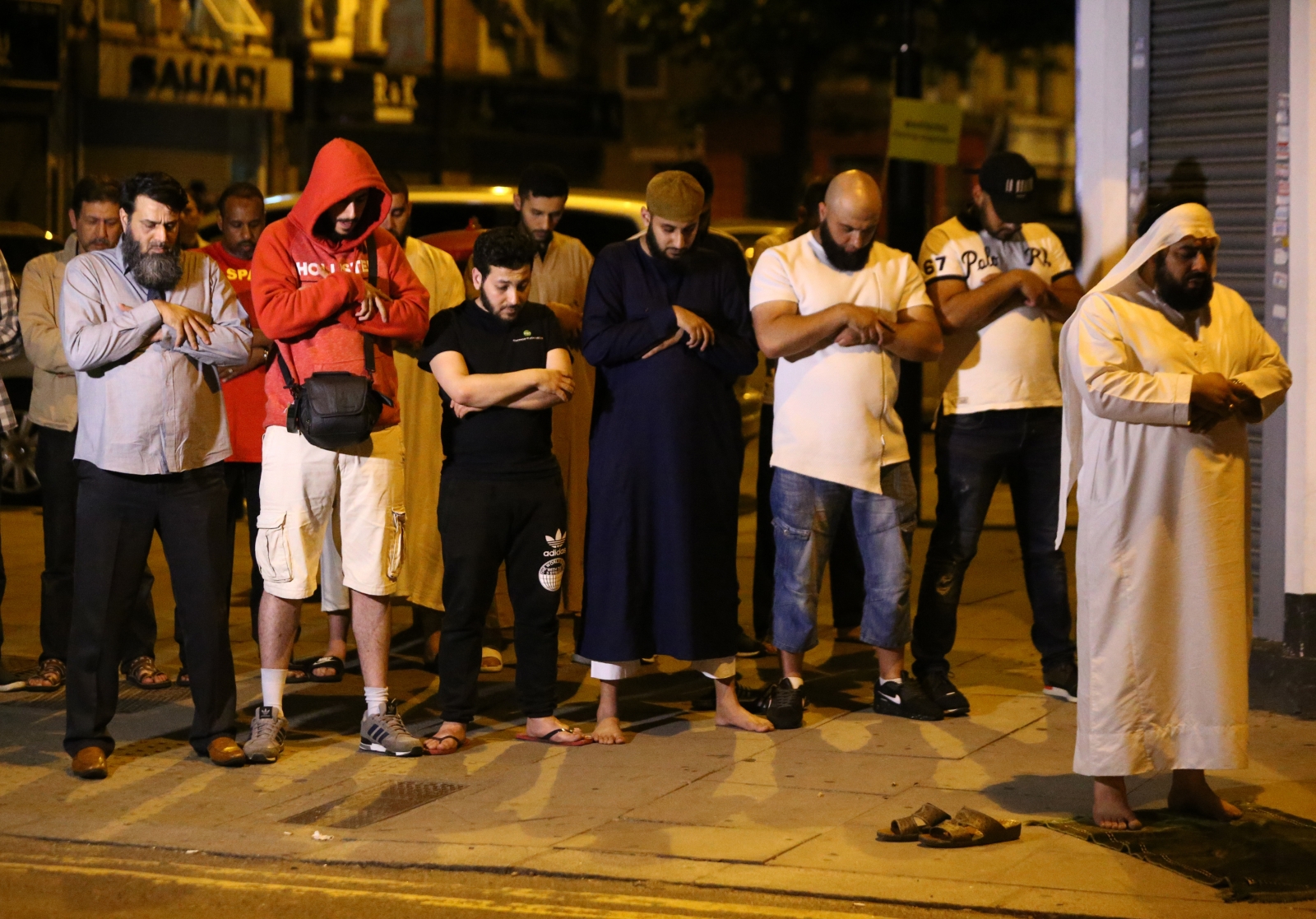Criticising the media over terror attacks has turned into mass conspiracy
If a lie might help to further one's political aims, few it seems have time for the truth.
Public trust in the media has collapsed in recent times, just as trust in politics has imploded. People have "had enough of experts", as Michael Gove phrased it last year, but many seem also to have had enough of anything and everything which gives off even the faintest whiff of 'the establishment', a euphemism for those in authority.
This is not entirely unhealthy. There is something to be said for treating centrist, common sense 'expertise' with caution. It is all too easy to forget who exactly the 'experts' of the past few decades have been: the deregulators and privatisers.
Those who bloviated about Weapons of Mass Destruction in Iraq. The politicians who promised a 'bonfire of red tape' and gave us a burning tower block.
But there comes a point where scepticism slides over into mass conspiracism. The increasingly out of control vitriol directed at the BBC falls comfortably under this heading.
It would be unfair to accuse one political faction of succumbing to this bourgeoning anti-media persecution complex.
A growing unwillingness to tolerate dissent and any opinion that differs from one's own means a BBC journalist is as likely to be booed at a Labour Party rally as at a Ukip gathering. Paradoxically, the malady is especially rife among those who are rarely off the corporation's screens.
Former Ukip leader Nigel Farage is a talking head guest on the BBC most weeks of the year – a strange sort of anti-Ukip bias on the corporation's part considering the party has no MPs. Yet Farage will jump on the anti-BBC bandwagon whenever an audience is savvy enough to see through his demagogic rabble rousing. Just last month Farage was calling for BBC staff to be sacked over an audience which he said included too many "paid-up Corbynistas".
From the other side of the political fence, petitions have been set up calling for the sacking of BBC political editor Laura Kuenssberg, accused with horrible regularity of reporting the 'wrong' version of events.
But most depressing of all perhaps are the attempts to discredit the BBC for its apparently imperfect response to acts of political violence. There has long been a campaign by dogmatic supporters of Israel which parrots a crackpot theory that the corporation's coverage of the Middle East proves that it simply doesn't like Jews.
The terminally paranoid – and those apparently with nothing better to do – pore with microscopic precision through the wording of every BBC report and every piece of analysis in search of the 'smoking gun' – the misplaced adverb or the leading adjective which provides cast-iron proof of the corporation's 'real agenda'.


For others, the BBC – along with the wider British establishment – is pursuing a silent vendetta against Muslims. The Daily Mirror has spent the morning helpfully debunking one untruth – spread unthinkingly on Twitter – that the police and emergency services callously failed to show up for an outrageous 30 minutes at the scene of the terror attack directed at a group of Muslim worshippers outside Finsbury Park Mosque overnight (19 June).
In the material world, police responded to the incident straight away. But to bring a useful axiom up to date, in the fast-moving and illusory world of social media a lie can gather thousands of retweets while the truth is still emerging, glacier-like, through the official channels.
Other pernicious untruths were being propagated and spread online as news of last night's awful events reached people over breakfast. It was claimed by one high-profile user of social media that the BBC was guilty of behaving differently in its reporting of acts of terror when they were directed against Muslims.
Never mind that the facts were still emerging: in this case the BBC was accused very publicly of insinuating that the van used to attack the worshippers drove itself. The corporation refused to give the attacker a political or even a human dimension because – wink wink – it was an attack on Muslims and the attacker was – presumably – white.
If a lie might help to further one's political aims, few it seems have time for the truth.
Double standards exist, and here was yet another example of the double standard which treats white far-right terrorists more leniently than violent Jihadists, so the critics would have us believe.
Muslims understandably tread with caution around certain foam-flecked sections of the media. However, the BBC has a track record of reporting all such terrorist incidents – whomever they target – in this frustratingly vague manner until the details become clear.
The BBC reported the recent Westminster attacks in this way ('car rams pedestrians'), as did ITV News ('van hits pedestrians in major police incident'). A cursory look at terrorist attacks elsewhere reveals it as standard journalistic practice. As it is with road accidents. London's cyclists are all too aware of media euphemism: when one of their number is knocked down it is usually by yet another - apparently driverless - 'out of control car'.
And yet the misleading – and inflammatory – tweet damning the BBC is still up, and is still being retweeted by the naïve and by those who want desperately to see things that aren't there. If a lie might help to further one's political aims, few it seems have time for the truth.
On the one hand it is understandable that compassion for the victims of terror or catastrophe should quickly morph into a search for someone to blame. Pious demands that those grieving 'do not politicise' tragedy is itself a form of politics: usually a tacit endorsement of the status quo. These commentators resemble, in another context, those politicians who claim to be 'non-ideological' or 'beyond left or right' – usually sure signs of conservatism.
But there is a difference between holding people to account for their crimes and trying to further one's own political aims by wilfully spreading misinformation. And because a depressingly high number of people have few scruples about doing the latter – about detaching admirable ends from egregious and dishonest means – the rest of us have to become far more sceptical and savvy about the things we read and help to spread online.
It doesn't hurt to think before you retweet, no matter how righteous you may feel.
James Bloodworth is former editor of Left Foot Forward, one of the UK's top political blogs, and the author of The Myth of Meritocracy. Follow @J_Bloodworth
© Copyright IBTimes 2025. All rights reserved.




















